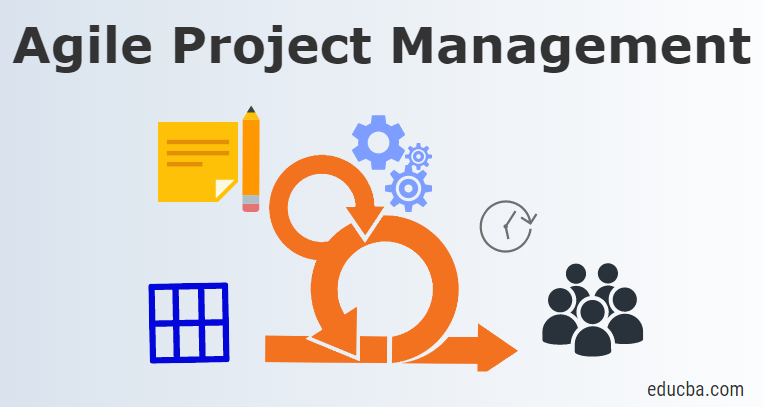What is Agile Project Management?
Agile Project Management is a descriptive method of managing the development of the project using certain techniques and approaches. For continuous improvements in the project, there are certain tools, techniques, and principles. Using these methodologies, you progress in the project more efficiently.
Understanding Agile Project Management
Earlier, when the project begins, the developer is involved in designing the software using code, debug them whenever it’s wrong, correct it, and all it’s done. The developed code effectively suited to the customer or not was the question. Producing a small piece of the project seemed a little difficult. As and when the project complexity increases, so do the difficulties in the software development process. It’s then when the software development models came into existence. For each development cycle, there was learning from the previous iterations. This was how the term Agile originated in 2001.
Important Aspects of Agile Project Management
To create a meaningful iteration asking with the Software development cycles. The 4 major points created a way more transparency in the project approach for success.
- Team Interaction: In the software development process, rather than just told and processes, there is a need for Team Interaction. That is when a project can lead to success in a very efficient way.
- Simplified Approach: Agile methodology is based on working on chunks called ” sprints”. This leads to a simplified approach to continuous development.
- Customer Collaboration: The customer’s involvement in the project plays a very important role in Agile management so that the project is customer-oriented.
- Respond to the Immediate Changes: If there are any changes made during any of the development stages. Immediate changes can be implemented in agile.
12 Principles of Agile Manifesto
The 12 Principles of the Agile Manifesto are as follows:
- The first principle is to take a customer-oriented approach and keep them updated.
- Make changes whenever and wherever required, even at the end of the development stage for any competitive changes.
- Delivering the software to customers on time with more flexibility.
- Collaboration between Business and development teams.
- Give support and motivation to the team member who shows interest in the project. Give them that extra work there would like to do, and trust them to get the job done.
- Have a face-to-face integration with the team.
- Working software is the primary measure of progress.
- Agile processes promote sustainable development for all.
- Continuous attention to technical excellence and good design enhances agility.
- The simplicity of the agile environment.
- The best practices come from self-organizing teams.
- Work effectively within and cross-functional teams.
Agile Practices
Agile projects are driven by a shared commitment to the values, principles, and practices that define the Agile methodology; let’s look at a few Agile practices as described below.
1. Agile Planning
This is the initial stage of any Agile Project. Planning is generally the first few weeks where the team decides the plans the work according to time, cost and delivery. It includes all the team members to work as per the project is directed from start to release.
This planning is done at 3 levels:
a. Release plan: The product owner is involved in this stage for when each stage project release should happen.
b. Iteration plan: At each iteration, the members of the team will plan and work together.
c. Daily plan: Each day, the project discussion and plans meeting are held for tracking the Project Progress.
2. Testing in Agile
In every stage of project development, testing takes place. An agile development team is involved in testing as well. This takes in two ways:
a. Manual testing
Test during the development is manual testing; at this stage, the developer will write a piece of code to test to validate. It checks both fail as well as then the pass test. So piece by piece, the code is generated and tested before the next set of code is written. This is a low to high testing approach. This is the best approach.
b. Automated testing
Automated testing is carried out when the whole code is written and then run a few tests in the whole code to check for any errors. If the error is found, the developer has to go back to the error code and correct it. But this seems to be tedious because if the piece of code is changed, the interlinked code associated with it has to be changed accordingly. This is a high to low testing approach. Hence, this is not much feasible. Instead, writing a piece of code and testing that piece of code automatically will save a great amount of time.
3. Points to Remember in Agile
a. Improper Planning
Planning is the first step in Agile; without proper agile planning, we are not sure to achieve anything.
Handling the Entire Team, along with business associates, operations, product management, people management, can be carefully included in the agile process. Moving too fast in this process can lead to missout a few important stages, which include customer collaboration.
b. Agile knowledge
Proper knowledge/training is given to developers in Agile. Using strategies for documentation at every stage.
Agile is the best approach to the developing teams which are customer-oriented for rapid developments.
Recommended Articles
This is a guide to Agile Project Management. Here we discussed the important aspects, principles, and practices of agile project management. You may also look at the following articles to learn more –




